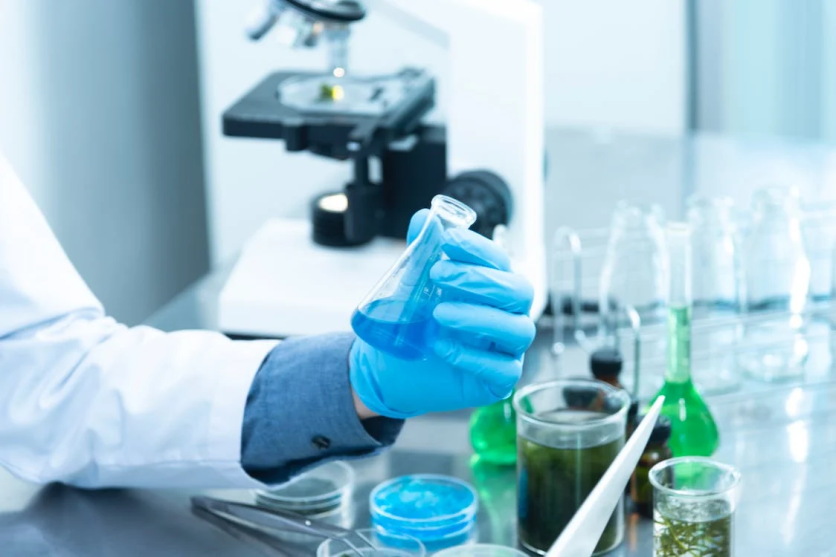
Regenerative medicine is a rapidly advancing field that holds tremendous promise for treating a wide range of diseases and injuries, which involves harnessing the body's natural healing processes to repair and regenerate damaged tissues and organs. This revolutionary approach can potentially transform how we treat a wide range of conditions, from chronic diseases such as diabetes and heart disease to injuries such as spinal cord damage and traumatic brain injury. This offers new hope for millions of people suffering from these debilitating diseases.
Pioneering in efforts to achieve this is Immunotherapy Regenerative Medicine, a certified stem cell treatment center based in Puerto Vallarta, Mexico. Being the first to adopt regenerative treatments and stem cell therapy in Mexico, Immunotherapy Regenerative Medicine uses high-level Mesenchymal stem cells (MSCs) to facilitate regenerative therapies for various diseases such as autoimmune, chronic, degenerative, and inflammatory medical conditions.
Immunotherapy Regenerative Medicine has been helping patients around the world for over 20 years under the guidance and leadership of regenerative expert Dr. Ernesto Romero.
Dr. Romero shares his insights about regenerative medicine and how it transforms traditional medicine to bring hope to many patients today.
Why are autoimmune diseases so challenging to treat?
Autoimmune diseases are conditions that arise when the body's immune system attacks its own cells and tissues. This can result in various symptoms and complications, including inflammation, pain, and organ damage. According to Dr. Romero, there are over 80 different types of autoimmune diseases affecting millions of people worldwide.
Despite advances in medical science, treating these conditions has been challenging due to their complex and varied nature. Dr. Romero explains that traditional treatments, like nonsteroidal anti-inflammatory drugs (NSAIDs) and disease-modifying antirheumatic drugs (DMARDs), can be effective in managing symptoms, but they often come with significant side effects and do not address the root cause of the disease. Moreover, they may not work for everyone, and some patients may develop resistance over time.
The limitations of current treatment options highlight the need for more effective and targeted therapies for autoimmune diseases. That's where regenerative medicine comes in, offering a promising new approach to treating these conditions. Dr. Romero explains that rather than merely masking symptoms, regenerative medicine aims to address the underlying causes of autoimmune diseases by repairing and regenerating damaged tissues and cells.
The rise of regenerative medicine against autoimmune diseases
Regenerative medicine is a rapidly evolving field that is transforming the way people think about treating diseases. Unlike traditional treatments that aim to manage symptoms, regenerative medicine focuses on repairing and regenerating damaged tissues and organs, thus addressing the root cause of the disease.
Dr. Romero explains that the basic principle of regenerative treatments is to harness the body's natural healing processes to repair and replace damaged cells and tissues. This can be achieved through a range of techniques, including gene therapy, tissue engineering, and stem cell therapy.
Dr. Romero puts emphasis on stem cell therapy as it is one of the most promising approaches within regenerative medicine. He shares that the method involves using stem cells to repair and regenerate damaged tissues and organs.
Stem cells are unspecialized cells that have the ability to differentiate into various cell types and can be found throughout the body. These can also be harvested from multiple sources, including bone marrow, umbilical cord blood, and adipose tissue. Stem cells can then be isolated, purified, and transplanted into damaged tissues or organs to promote healing and regeneration.
Healing at hand with Immunotherapy Regenerative Medicine
Immunotherapy Regenerative Medicine utilizes MSCs to promote healing and improve the quality of life of its patients. Beyond the benefits mentioned above, stem cells also have the ability to self-renew, making them a valuable source of treatment.
Dr. Romero shares, "Stem cell therapy is convenient because it is highly compatible, safe, natural, and painless. This is why we highly recommend it to our patients seeking alternative medicine."
The team at Immunotherapy Regenerative Medicine believes that introducing stem cells into damaged or diseased tissues triggers the body's natural healing mechanisms and promotes tissue regeneration. This can help reverse many health problems by replacing damaged or diseased cells with healthy new ones and prevent conditions from developing or worsening by restoring proper tissue function.
Dr. Romero's experienced team, including doctors, biologists, biophysicists, biochemists, and nutritionists, prioritize understanding each patient's immune system before administering stem cell treatment. Through lab tests and direct communication, they create a stem cell therapy plan that best suits the patient's health status to enhance health and facilitate healing.
Treating autoimmune diseases can be an arduous and disheartening process for patients. However, the advent of regenerative medicine facilitated by top-tier stem cell treatment centers like Immunotherapy Regenerative Medicine offers a newfound hope to millions of people suffering from these debilitating diseases.
ⓒ 2026 TECHTIMES.com All rights reserved. Do not reproduce without permission.




